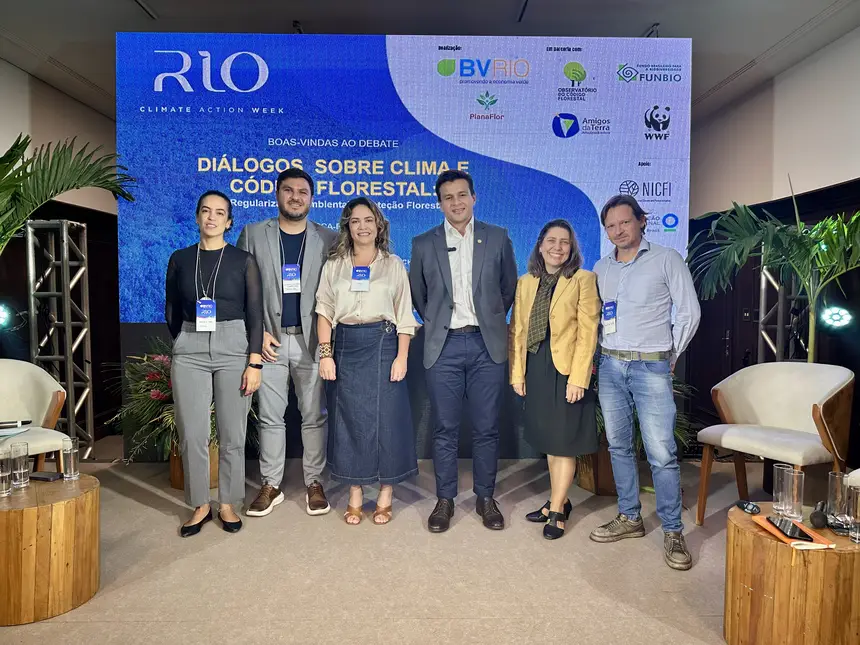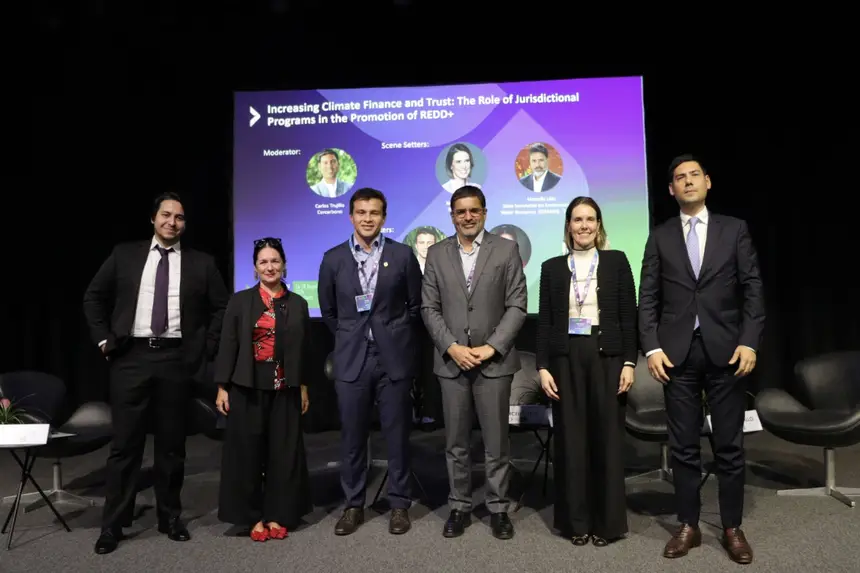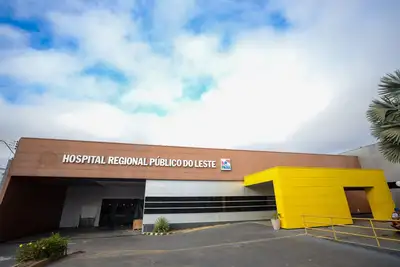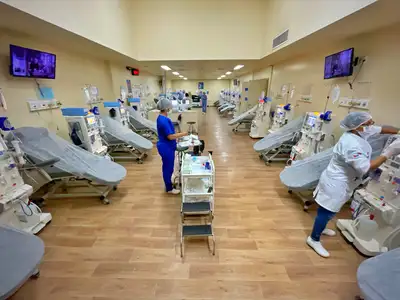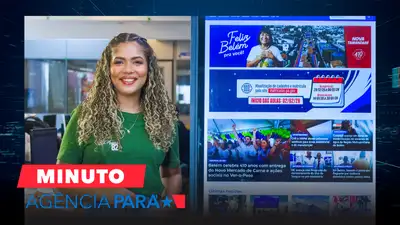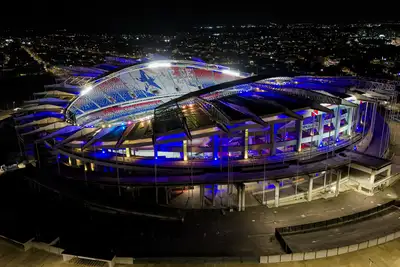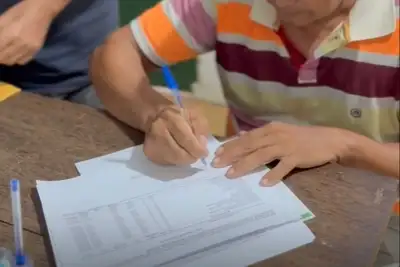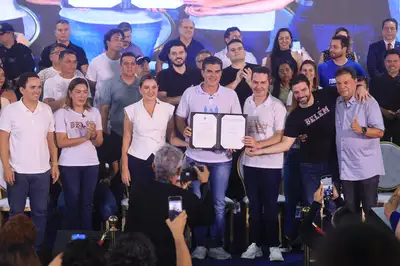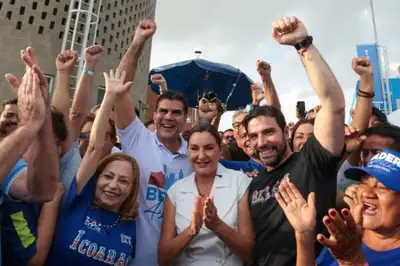Pará advocates for pacification in the REDD+ debate and highlights its leadership in the carbon market
Secretary Raul Protázio represented the State in panels on climate financing and the Forest Code, in São Paulo and Rio de Janeiro
The head of the Secretariat of Environment, Climate and Sustainability of Pará, Raul Protázio Romão, argued this Wednesday (27) in São Paulo (SP) that it is necessary to pacify the debate on jurisdictional REDD+ systems and projects for reducing emissions from deforestation in Brazil so that public policies can advance. Pará stands out in the country with the construction of its jurisdictional REDD+ system in a participatory manner, through which the largest consultation of traditional peoples and communities in the history of the State is being conducted. A total of 11 CLPIs (Free, Prior and Informed Consultations) have already been carried out, out of a total of 47 planned.

“As a country, we need this pacification because there is nothing worse than a lack of stability, predictability, and clarity of rules. So, we need to pacify and resolve this so that we can foster the market and a demand that trusts Brazilian products,” said the secretary during his participation in the panel "Increasing Climate Financing and Trust: The Role of Jurisdictional Programs in Promoting REDD+,” during the Latin America Climate Summit, promoted by the International Emissions Trading Association (IETA), in the capital of São Paulo.
The event featured participation from Natália Renteria of ‘Race to Belém’, Marcelo Lélis, Secretary of Environment and Water Resources of Tocantins, Mary Grady, Secretary of ART Trees, and Gabriel Reis of Fastmarkets, moderated by Carlos Trujillo of Cercarbono.
The head of Semas refers to the current debate in the country regarding carbon credits, REDD+ projects, and Jurisdictional REDD+ Systems. In December of last year, President Luiz Inácio Lula da Silva sanctioned the law regulating the carbon market in Brazil. Pará signed its first ERPA (Emission Reduction Purchase Agreement) in September of last year with the Leaf Coalition, establishing conditions for the sale of environmental assets based on proven deforestation reduction, the so-called “carbon credits.” In June 2025, the Federal Court denied a request for contract suspension.
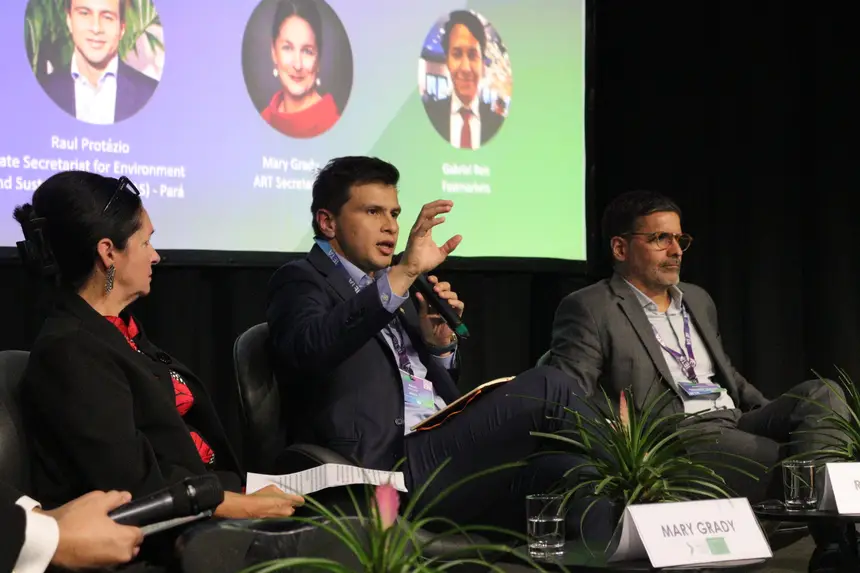
Jurisdictional REDD+ System of Pará
In creation for over two years, the Jurisdictional REDD+ System of Pará is one of the main public policies outlined in the State Plan Amazônia Agora, a macro strategy of the Government of Pará for changing land and forest resource use. Since 2022, various meetings, workshops, and technical meetings have been held with around 1,700 people, including indigenous peoples, quilombolas, extractivists, and family farmers. The goal of the Pará government, according to Raul Protázio Romão, is to build a system together with these populations, listening to and incorporating their demands.
During the panel in SP, the secretary also stated that REDD+ projects and jurisdictional programs are complementary. “The relationship between REDD+ projects and Jurisdictional programs. They are not conflicting or exclusive; they are complementary things that occupy the same territory. So, clarity in these rules is good for project developers, good for jurisdictions, and for the market,” he said.
Romão also reaffirmed that the environmental agenda has undergone a transformation and is currently a development-promoting agenda. “The environmental agenda is, by nature, regulatory and conditioning. And at a certain point, it becomes a fostering agenda for the development of other bases, bases that have not been seen until now, where the forest asset is not an obstacle but a driving force, along with the ancestry of the peoples, along with traditional knowledge. So, we have an opportunity and a challenge, from the perspective of decision-making and benefit-sharing. Because we must remember that this decision-making process will lead to the Free, Prior and Informed Consultations, and states must be very vigilant so that the sharing of these resources is aligned with a broader strategy to promote this development of new bases,” he stated.
Climate and Forest Code
The head of Semas also participated on Tuesday (26) in the ‘Rio Climate Action Week’, the Climate Week of Rio de Janeiro, an opportunity where he highlighted the advances in environmental regularization in the state. “In Pará, we had this advancement of CAR [Rural Environmental Registry] 2.0, with the dynamic analysis to complement the manual analysis done by the technical team, and we will now deliver, in the second semester, the new SICAR, which is the new Rural Environmental Registry system of the State of Pará, in addition to a new PRA [Environmental Regularization Program], which is a system that will already come coupled and integrated with the new SICAR, to overcome these technological barriers,” he explained.

Alongside names such as Jarlene Gomes from the Amazon Environmental Research Institute (IPAM), Marina Fernandes Dias from the State Institute of Forests of Minas Gerais (IEF-MG), Leonardo Carvalho, Secretary of Environment of Acre, and Joana Chiavari, researcher at the Climate Policy Initiative (CPI), the secretary reinforced the need for debates like this to overcome common challenges among states.
“Here, we discussed the implementation of the Forest Code, which after 13 years still faces challenges, a national inter-federal dialogue, a super important agenda for the states from an environmental, economic perspective, and, moreover, about opportunities for restoration, job generation, and regularity. So, we were together with other secretary colleagues, federal government, private sector, and third sector discussing the implementation of the code, the restoration agenda, which is super important,” said Raul Protázio.


